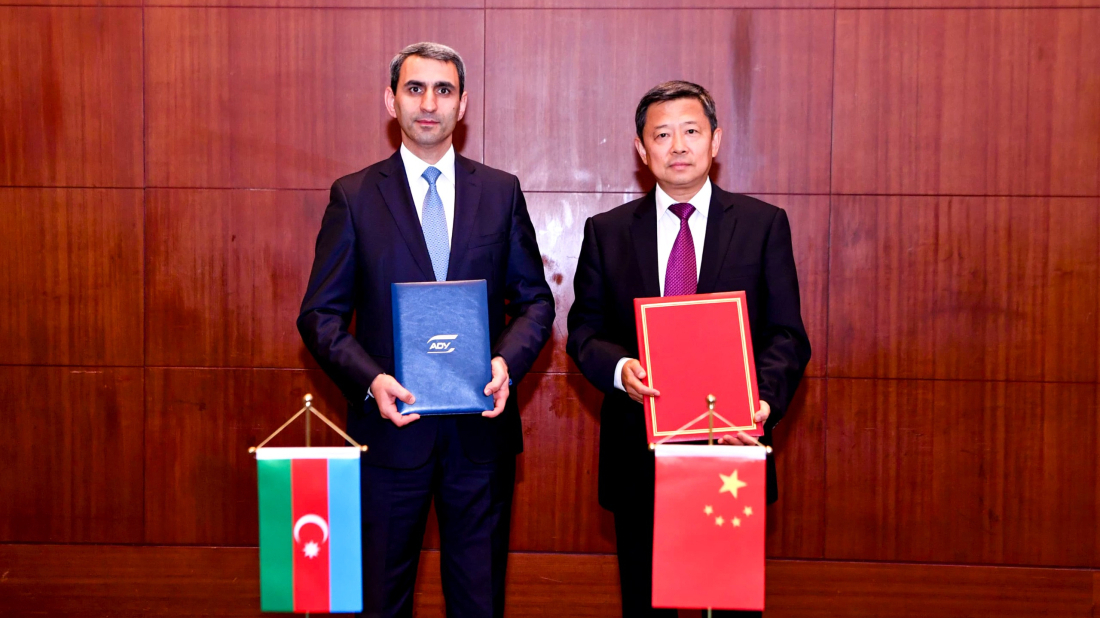Trump says additional talks with Iran expected on Friday
Tensions between the U.S. and Iran are escalating, with Washington ordering a significant military build-up in the region and multiple countries evacu...

Azerbaijan Railways and China State Railway Group agreed on Thursday to raise freight traffic on the Baku–Tbilisi–Kars line to as many as 10 trains a day, aiming to turn the route into a high-capacity artery between East and West.
The memorandum of understanding, signed in Baku, commits the two state rail operators to expand track, port and container facilities so that goods from Chinese factories can reach Türkiye and onward European markets more quickly, the companies said.
Central to the deal is the Baku–Tbilisi–Kars (BTK) railway, a 846-kilometre link that forms the spine of the so-called Middle Corridor running from the Caspian Sea to the Mediterranean. Under the agreement, daily block-train capacity will rise to “up to ten” by the end of the decade, from only a handful today.
The partners will also deepen co-operation on Caspian Sea logistics, increase container services and explore joint investment in rolling stock. Azerbaijan Railways (ADY) completed a major modernisation of the Georgian section of the BTK in 2023–24, paving the way for heavier loads and faster transit times.
EU-backed studies estimate that east-west trade volumes through the Middle Corridor could triple by 2030 if bottlenecks are removed. By linking into Türkiye’s rail network, the BTK bypasses congested Black Sea ports and avoids Russian territory—a route that has gained importance since Moscow’s full-scale invasion of Ukraine in 2022.
Officials in Baku say the deal with Beijing cements Azerbaijan’s role as a regional hub. China already uses the line for test shipments of electronics and auto parts bound for Europe, but limited track capacity has so far capped throughput.
Further talks will focus on digital customs systems and harmonised tariffs to make the corridor competitive with maritime services via the Suez Canal.
Both sides said the memorandum “opens a new chapter” in Sino-Azeri transport ties and supports wider Belt and Road initiatives.
Tensions between the U.S. and Iran are escalating, with Washington ordering a significant military build-up in the region and multiple countries evacuating diplomatic staff amid fears of further instability.
The situation in Cuba was heating up and called for restraint following a deadly incident involving a Florida-registered speedboat off the coast of the Caribbean island, the Kremlin said on Thursday (26 February).
Another shipment of petroleum products from Azerbaijan to Armenia has been dispatched, with 39 rail tank cars carrying 4,500 tonnes of diesel fuel sent today, Report informs.
Russian President Vladimir Putin’s special envoy, Kirill Dmitriev, arrived in Geneva and may hold talks with U.S. officials, according to the RIA news agency.
Pakistani air strikes hit a weapons depot on the western outskirts of Kabul overnight, triggering hours of secondary explosions that rattled homes across the Afghan capital and left residents fearing further violence.
Abdullah Öcalan, the jailed leader of the outlawed Kurdistan Workers’ Party (PKK), issued a statement on Friday (27 February) calling on Ankara to adopt legislation aimed at promoting political inclusion.
Pakistani air strikes hit a weapons depot on the western outskirts of Kabul overnight, triggering hours of secondary explosions that rattled homes across the Afghan capital and left residents fearing further violence.
Pakistan’s declaration of an “open war” with Afghanistan must be understood in the context of months of escalating violence, regional analysts have said, describing the latest developments as a significant shift in the nature of the conflict.
Israeli strikes killed five people in Gaza on Thursday (26 February), according to health officials in the territory. The Israeli military said separately that it had killed a militant who posed an imminent threat to its forces in southern Gaza.
Iran’s Foreign Minister Abbas Araghchi on Friday urged Afghanistan and Pakistan to resolve their differences through dialogue, offering Tehran’s assistance to facilitate understanding between its eastern neighbours.
You can download the AnewZ application from Play Store and the App Store.

What is your opinion on this topic?
Leave the first comment